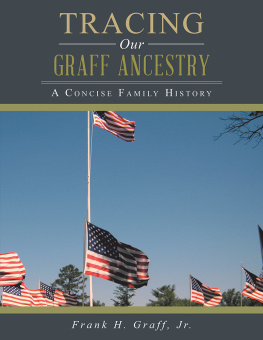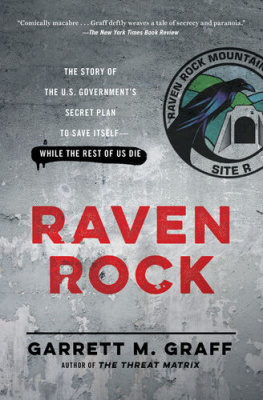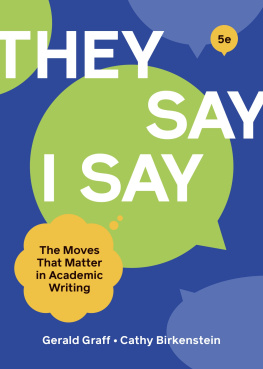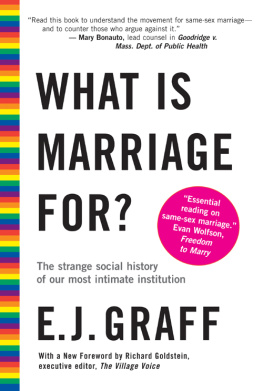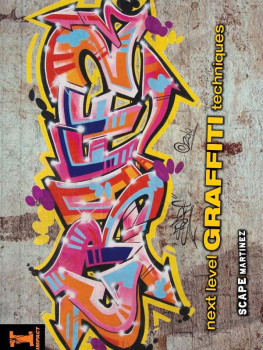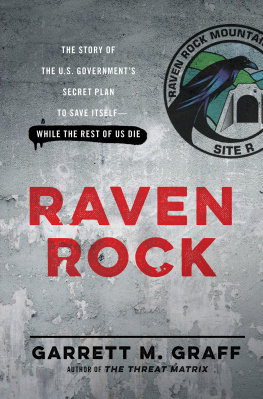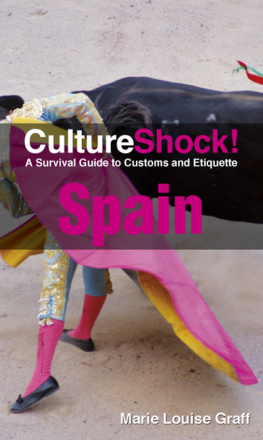CLUELESS IN ACADEME
GERALD GRAFF
Clueless IN Academe
HOW SCHOOLING OBSCURES THE LIFE OF THE MIND

Published with assistance from the foundation established in memory of Philip Hamilton McMillan of the Class of 1894, Yale College.
Copyright 2003 by Gerald Graff. All rights reserved. This book may not be reproduced, in whole or in part, including illustrations, in any form (beyond that copying permitted by Sections 107 and 108 of the U.S. Copyright Law and except by reviewers for the public press), without written permission from the publishers.
Designed by Rebecca Gibb.
Set in Scala type by Achorn Graphic Services.
Printed in the United States of America.
The Library of Congress has cataloged the hardcover edition as follows:
Graff, Gerald.
Clueless in academe: how schooling obscures the life of the mind / by Gerald Graff.
p. cm.
Includes bibliographical references (p. ) and index.
ISBN 0-300-09558-9 (alk. paper)
1. Education, HigherSocial aspectsUnited States. 2. Learning and scholarship
United States. I. Title.
LC191.94 .G73 2003
306.43dc21
2002151910
A catalogue record for this book is available from the British Library.
The paper in this book meets the guidelines for permanence and durability of the Committee on Production Guidelines for Book Longevity of the Council on Library Resources.
ISBN 0-300-10514-2
10 9 8 7 6 5 4 3 2
CONTENTS
ACKNOWLEDGMENTS
I want to give special thanks to Steve Benton, my graduate assistant for the past three years at the University of Illinois at Chicago. Steve went far beyond the call of duty in reading my many drafts and providing constant high-quality feedback, criticism, and encouragement. He also took on much of the work of helping me prepare the manuscript for the press. Some of the ideas and even the words and phrases in this book are as much Steves as my own.
Two generous grants supported me in writing this book. The first allowed me to spend a fellowship year at the Center for Advanced Study in the Behavioral Sciences in California, where I began the book. The second, from the Spencer Foundation of Chicago, enabled me to finish it. I am grateful to these two organizations, without whose assistance this book would have taken a lot longer to complete.
I am grateful to Robert Scholes, who read two different versions of my manuscript for Yale University Press and offered very constructive advice on how to revise them. The importance to me of Bobs work as a model of how to write about the challenges of English teaching is reflected in .
Special thanks also go to Andy Hoberek, who co-authored want to extend special thanks to my longtime friend and now colleague and team-teaching partner, Jane Tompkins, whose ideas and writing figure centrally in this book. Engaging with Janes work has been crucial to me in forming my own ideas.
I also want to give special thanks to several people who supplied me with information about their creative teaching practices and kindly gave me permission to quote them at length here: Jim Benton, Jack Brereton, Hillel Crandus, Cathy Birkenstein-Graff, Donald Jones, and Ned Laff.
I also warmly thank the many friends and colleagues whose conversations on teaching and learning were instrumental in helping me think out what I wanted to say: Jennifer Ashton, Howard Becker, Jerry Bona, Wayne Booth, Jack Brereton, Marsha Cassidy, Candace Clements, Lennard Davis, Todd DeStigter, Kevin Dettmar, Ann Feldman, Leon Fink, Stanley Fish, Mike Fischer, Bridget ORourke Flisk, Steve Flisk, Christopher Freeburg, Howard Gardner, Patty Harkin, Tad Howard, Donald Jones, Steve Jones, Don Lazere, Jo Liebermann, Jo and Larry Lipking, Mark Krupnick, Steve Mailloux, Larry McEnerney, Charlie Newman, Bruce Novak, Karen Mann, Chris Messenger, Walter Benn Michaels, Peter Michelson, Bill Rice, Jeff Rice, Bruce Robbins, Larry Rothfield, Lance Rubin, Cindy Sabik, Dave Schaafsma, Lee Shulman, David Shumway, Herb Simons, Jim Sosnoski, Richard Strier, Steve Tozer, Jeffrey Wallen, Michael Walsh, Jeff Williams, Ellen Winner, Don Wink, Vershawn Young, and the late Tom Samet.
My thanks to the journals and journal editors who kindly gave me permission to reprint parts of this book that they published in different versions in article form: Arts and Humanities in Higher Education, College English, The Common Review, The Hedgehog Review, Pedagogy, and PMLA.
I want particularly to thank Jonathan Brent, my friend and former co-director at the Northwestern University Press and editorial director of Yale University Press. Jonathan solicited this book and provided me with a penetrating reading of an early draft. Thanks also to my manuscript editor, Jeff Schier, who made many valuable suggestions and eased me through the trauma of online copyediting.
Finally, I express my eternal thanks and love to my wife and collaborator, Cathy Birkenstein-Graff, who is writing a textbook with meA Short Guide to Argumentthat will be a sequel and companion to Clueless in Academe. Cathy read and commented on many drafts and patiently talked me through trouble spots. Her patience, support, and loving guidance contributed much more to this book than I can express.
INTRODUCTION
In the Dark All Eggheads Are Gray
THIS BOOK IS AN ATTEMPT by an academic to look at academia from the perspective of those who dont get it. Its subject is cluelessness, the bafflement, usually accompanied by shame and resentment, felt by students, the general public, and even many academics in the face of the impenetrability of the academic world. It examines some overlooked ways in which schools and colleges themselves reinforce cluelessness and thus perpetuate the misconception that the life of the mind is a secret society for which only an elite few qualify.
Given the inherent difficulty of academic intellectual work, some degree of cluelessness is a natural stage in the process of education. If cluelessness did not exist, there would be no need for schooling at all. My argument in this book, however, is that academia reinforces cluelessness by making its ideas, problems, and ways of thinking look more opaque, narrowly specialized, and beyond normal learning capacities than they are or need to be. As I see it, my academic intellectual culture is not at all irrelevant to my students needs and interests, but we do a very good job of making it appear as if it is.
One way we do so is by obscuring the convergence between academia and the popular media. Too often schools and colleges take intellectual conversations that resemble the ones students engage in or encounter in the popular media, and make them seem unrecognizable, as well as no fun. To put it another way, schooling takes students who are perfectly street-smart and exposes them to the life of the mind in ways that make them feel dumb. Why is this? Why in many cases do street smarts not only fail to evolve naturally into academic smarts, but end up seeming opposed to academic smarts, as if the two cant coexist inside the same head? Part of the reason has to do with the legacy of American anti-intellectualism, which elevates hardheaded common sense over supposedly impractical academic navel gazing. But educational institutions themselves contribute to the problem by making the culture of ideas and arguments look opaque and therefore more remote than it actually is from the wisdom of the street.
How this happens, how schooling obscures the life of the mind, is my central concern. Jargon and specialized terminology, the most frequently blamed culprits, are only the tip of the institutional iceberg. I too am amused by the satires on opaque academic jargon produced by journalists, stand-up comics, and disaffected academics. But blaming the unintelligibility of academia exclusively on jargon and obscure writing prevents us from recognizing deeper sources of obfuscation that are rooted in the way academia organizes and thinks about itself. To appreciate these deeper causes, we need to go beyond spoofs of jargon to the way schools and colleges represent the culture of ideas and arguments.
Next page

